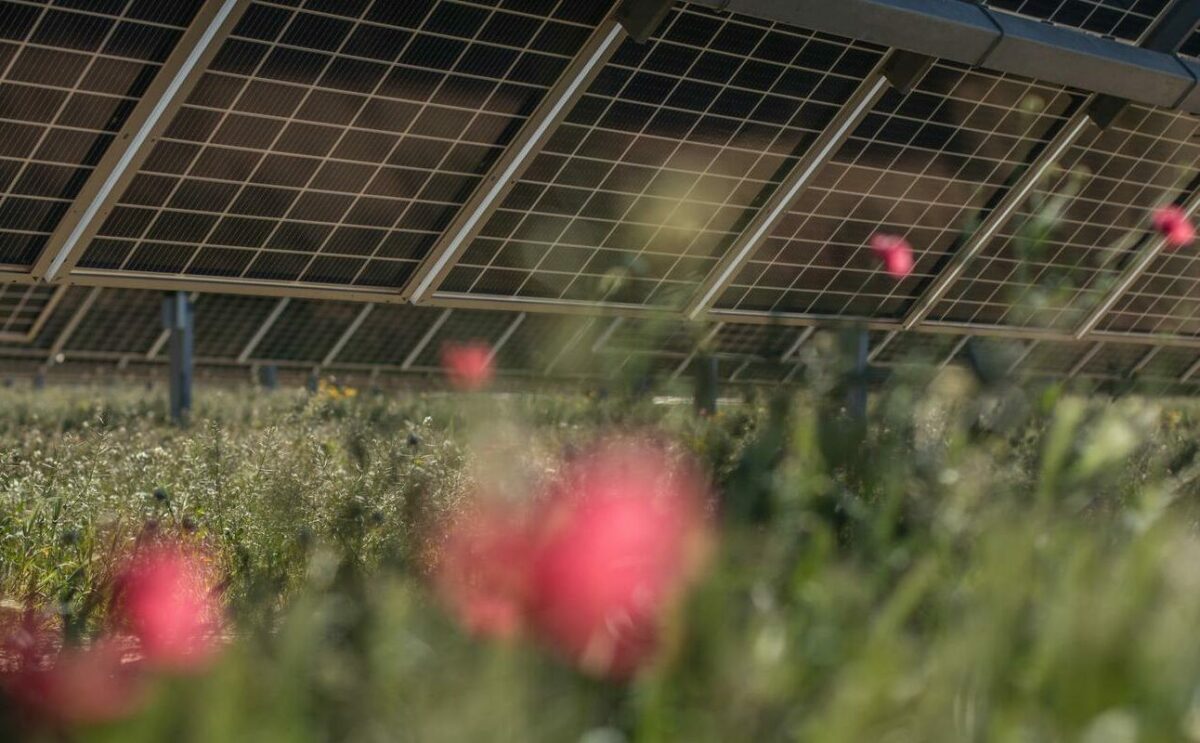Politics and Planning Decisions – An Uneasy Marriage
Article posted on LinkedIn by Penny Laurenson, Head of Planning at Lightsource.
“What the hell is that? Who is allowing these ugly things?” I heard from behind me as I crossed Waterloo bridge the other day. The ‘what’ they were referring to was the new sky scrapper going up at One Blackfriars (apparently, they’re trying to make the unofficial moniker of ‘The Boomerang’ stick – the lady behind me went with ‘The Blob’).
As to the ‘who’ allowed it to go ahead – that was the Planning Committee at Southwark Council.
For the uninitiated wondering how these mystical omnipotent Planning Committee’s operate – let me illustrate with a story I once heard. On the distant shores of Northern Ireland one evening, a Planning Committee was taking place, the Councillors had settled into a debate on the merits of a proposed new park – one Councillor suggested getting 10 gondolas for the planned lake – another Councillor – perhaps only half paying attention, but with their eye firmly on the budget – interrupted to counter that they only needed to get two gondola’s and then ‘just let them breed!’
Now I’ve not witnessed anything quite as comical as this – however I have seen significant variance in terms of the professionalism and operation of Planning Committees across the UK. Some are tightly run ships, where the Committee Chair keeps Councillors focused on the material planning considerations, and members are expected to have read and considered the Officer’s Report (the report by the planner who has assessed the application) prior to the committee meeting. Others are (how to put this politely…) a tad loose. Now, if you were thinking that reading the Officer’s Report would surely be a given (as I naively did when I first entered this game), unfortunately that’s not always the case, and that’s not even the worst of it. More than one member of my team has reported back after a committee meeting, incredulous that a Councillor slept throughout the Officer’s presentation and following committee discussion, awaking just in time to vote against our proposal.
As a Chartered planner, it’s probably unsurprising that I think planning decisions are best made by qualified Planners. Now – Planners are not always perfect, they can make mistakes, or accept development proposals that perhaps should be pushed back (in fact in the case of The Blob above, the planner had recommended approval in their Officer’s Report to committee), so it is important that there is a second layer of scrutiny, particularly for major and controversial developments. My question is whether this higher level of decision making should sit with politicians. I recall one night when a planning committee refused all 6 solar farm applications in front of it in short succession (3 of which were ours), giving them all word for word the exact same reason for refusal (even though there were all in different locations, with different local contexts). The Council’s Head of Legal even called the Councillors out of the committee room for a word part way through proceedings (presumably to remind them of the risks their approach held). Over the year that followed, all 6 of those refusals were overturned on appeal, with costs being awarded against the Council for unreasonable behaviour. Note that it is the Council as an entity that is required to pay the fines, the Councillors who made the decisions are not held accountable.
The impact of politicking in decision making can be significant for applicants. Appeals can easily take over a year to be determined – so even if the appeal is successful and an applicant is eventually granted planning permission, they will have suffered time delays and increased costs, and in some cases the impact of this may kill the project entirely.
The potential for politics to influence planning decisions is never more pertinent then around election time. Anyone with a remotely controversial planning application will be aware that the pre-election committee meeting presents an extra degree of uncertainty and risk for applicants. In the run-up to an election there are added pressures for Councillors – they may be concerned about their chances of re-election (particularly if a rival is campaigning on an anti-development ‘I’ll protect the village’ platform), and there is likely to be greater attention to Councillors actions in the local press.
At the national level, purdah means that the Secretary of State will not be issuing any further decisions on call-ins and recovered appeals until after the election. However, no such purdah restrictions apply to local authorities as determining planning applications is a core Council function.
Perhaps one way to overcome the potential for politics or the pressure of an impending election to influence planning decisions would be to import an idea from New Zealand’s planning system. In New Zealand, applicants can choose – at their cost – to request an appropriately qualified Independent Commissioner to hear and determine their application, as an alternative to a panel of Councillors. (I’m sure many would also welcome the importation of New Zealand’s 20-working day statutory determination timeframe – but that’s a topic for another day!).
This could be beneficial for both applicants and Councillors. Applicants would feel reassured that their application would be judged on its planning merits, and that politics would not influence the decision whilst Councillors would be free to attract by-lines and photo opportunities by either rallying in support or opposition of a proposal – without actually having to make the call on an application at a sensitive time.
Food for thought for any policy makers out there!
Related news
26 Jun, 2025
Lightsource bp signs first PPA in Taiwan with Star Trade for pilot fishery solar project
Lightsource bp has signed a power purchase agreement (PPA) with Star Trade for its Budai solar project in Taiwan.
10 Jun, 2025
Lightsource bp secures financing on its first project in Taiwan and its pilot fishery solar project globally
Lightsource bp, a leading developer and manager of global onshore renewable energy projects, has secured financing for its 115MWp fishery solar project in Taiwan.
05 Jun, 2025
PPAs: a key lever for the energy transition in Europe
Watch our webinar to learn about how sustainable PPAs are emerging as a key commercial solution for corporate buyers.
29 May, 2025
Lightsource bp publishes 2024 Sustainability Report
Lightsource bp, a global trusted partner in delivering onshore renewable energy solutions, is pleased to publish its 2024 Sustainability Report.
28 Apr, 2025
Lightsource bp celebrates World Safety and Health Day 2025
Lightsource bp celebrates World Day for Safety and Health at Work. At Lightsource bp, safety isn’t just one of our core values, it’s ingrained in our culture.
22 Apr, 2025
Celebrating Earth Day: Renewable energy for our world
Lightsource bp celebrates Earth Day! We're safely delivering large-scale renewable energy projects to create sustainable value for our people, partners and planet.
03 Apr, 2025
Brazil: Milagres named among top solar developers in 2024
Lightsource bp’s Milagres solar farms have been recognised as top-performing renewable energy projects in Brazil, ranking among the top 20 solar developers by e-Power Bay.
02 Apr, 2025
Lightsource bp contributes to the World Economic Forum’s conversation on responsible renewables deployment practices
Lightsource bp’s Penny Laurenson, Global Head of Sustainability, contributed to WEF’s conversation and thought leadership on responsible deployment practices.
19 Feb, 2025
10 Power Purchase Agreements signed and 1.3GW contracted in 2024
Lightsource bp achieved a significant milestone in 2024 by securing 10 power purchase agreements (PPAs) totalling 1.3GW across Europe, the Americas and APAC.
12 Feb, 2025
Lightsource bp enters Japan market with first renewable energy project
Lightsource bp, a global leader in renewable energy, has announced its entry into the Japanese market with the acquisition of a 15MWp solar project in Hokkaido.











